Attracted to, and Up to, the Challenge
As a young woman entering college and considering career choices, Farrer selected industrial engineering because it was “challenging, technical and tied closely to manufacturing,” she recalls. It’s not difficult to get Farrer to identify and share particularly challenging—and rewarding—times in her career. For example, as Delphi’s global quality director she was responsible for resolving any quality issues quickly, so as to not hold up assembly operations at automotive OEM facilities.
“In one case we had eight assembly plants waiting for one of our assemblies,” she shares. “We worked through the weekend, day and night, to resolve the problem and avoid delays. That was the high-pressure cooker I lived in.
“That’s an example of how fast paced and exciting manufacturing can be,” Farrer continues, “with opportunities for interpersonal communication, engagement and personal development.”
Those types of job descriptions also attracted Jada Dressler to the engineering profession, now two years into her career as a chemical and process engineer at Zeon Chemicals, in Hattiesburg, MS. Dressler, armed with a bachelor’s degree in chemical engineering and working toward her master’s degree, hit the ground running when she joined Zeon straight from college. Management assigned her projects right out of the gate, and also takes advantage of her green-belt six-sigma certification by having her participate in the firm’s corporate quality committee.
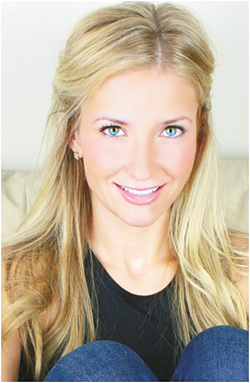 |
| “Work-life balance is something I definitely think about, down the road,” says chemical and process engineer Jada Dressler. “I want that balance, and I’m trying to get a feel for the types of jobs that would allow me to have that balance. I also know that WIM networking will allow me to learn how other women working in manufacturing have managed to maintain a healthy balance of home and work life.” |
While at first limited to more general plant-wide and relatively smaller projects, Dressler now takes the lead on process-specific and critical projects throughout the plant. These include development of a visual-inspection program to monitor and verify product quality.
“The opportunity to grow and progress in my career in this industry has been exciting, and rewarding,” Dressler says, echoing Farrer’s perspective on an engineering career. “I love getting up and going to the plant every day. While many of my female engineering-school classmates opted for sales jobs rather than finding jobs working in manufacturing plants, I thrive on the hands-on work.
“Throughout my life,” continues Dressler, “if someone questioned my ability to perform a task I became more determined than ever to prove them wrong. No one can tell me that I can’t do something.”
That goes for the completely male workforce Dressler works with in engineering and on the process-side of plant operations, almost all of whom have been on the job for more than 20 years. But while she faced some early skepticism from her coworkers after joining the company in 2011, “it’s been like having 50 big brothers in my corner,” Dressler shares. “I consider them mentors. People won’t just hand you respect and trust, it has to be earned.”
A highlight of her brief yet rewarding career in chemical process engineering has been learning to value other people’s opinions, she says, and to work with people with diverse backgrounds vastly different from her own.
“That learning experience—ongoing still—continues to make me a stronger and more successful engineer. It’s already been an incredibly rewarding career, and through my involvement with WIM I hope to inspire other young women to consider engineering as a career choice. And, I look forward to interacting with more experienced women in manufacturing so that I can continue to learn and gain inspiration.
“Work-life balance is something I definitely think about, down the road,” Dressler adds. “I want that balance, and I’m trying to get a feel for the types of jobs that would allow me to have that balance. I also know that WIM networking will allow me to learn how other women working in manufacturing have managed to maintain a healthy balance of home and work life.”
WIM Members Anxious to Mentor
Dressler and other young women working in manufacturing have plenty of mentors from which to choose, including Farrer and fellow STEP Award winner Mena Tazegul, quality systems and six-sigma manager at the John Deere Engine Works plant in Waterloo, IA. Tazegul notes that Deere’s WomenREACH (Relating, Enriching, Achieving, Challenging and Helping) organization has helped provide direction to her successful career at the company, which includes a stint as industrial engineering supervisor.
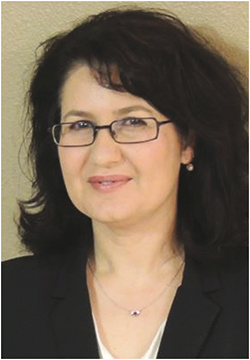 |
| Mena Tazegul, a John Deere quality systems and six-sigma manager, believes that “women are collaborators, nurturers and listeners. Manufacturers—all employers in fact—need these traits in their managers, and would benefit from moving women into leadership roles. I truly believe that when we put our ‘team-thinking’ hat on and when we collaborate, we als will find solutions to problems that are richer and better than if we try to develop solutions on our own.” |
“WomenREACH meetings and educational events,” she says, “provide opportunities for women at John Deere to share ideas and build professional relationships. We discuss challenges and share ideas to turn challenges into opportunities for improvement.”
Among such opportunities are those found on the plant floor as well as the often-discussed work-family balance issues faced by all families where both parents work outside of the home. For Tazegul, that has meant forgoing any job opportunities that required frequent travel so she could stay close to her family. Her solution differed greatly from that practiced by Farrer, whose husband, she says, took a primary role in raising their children. Different means to the same end—exactly the type of experience and idea sharing that Dressler and other young women in manufacturing can gain by becoming engaged in WIM.
The Industry Needs More Collaborators, Nurturers and Listeners
Like Farrer, Tazegul studied industrial engineering in college and earned a master’s degree (in operations management), “because I wanted to work within the manufacturing environment,” she says. “I enjoy working with the people on the shop floor, seeing how things are made and finding s to make them more efficiently. I like to be around creative out-of-the-box thinkers (Tazegul drops the name Leonardo da Vinci as a personal hero), and also enjoy helping to inspire that creative thinking in others.”
Prior to moving into her current role as quality systems and six sigma manager, Tazegul delivered significant improvements to the overall operation of the Waterloo plant as industrial engineering supervisor. As noted in her STEP Award biography page, she oversaw projects that expanded production capacity by more than 30 percent.
Now, as quality systems and six sigma manger, she describes her three primary responsibilities as:
• Overseeing quality systems and ISO certification
• Managing quality planning for new product launches
• Guiding the development of six-sigma projects to improve overall plant efficiency.
With a dozen direct reports, Tazegul stresses the importance, in addition to being a creative thinker, of being a relationship builder.
“Women are collaborators, nurturers and listeners,” she says. “Manufacturers—all employers in fact—need these traits in their managers, and would benefit from moving women into leadership roles. I truly believe that when we put our ‘team-thinking’ hat on and when we collaborate, we als will find solutions to problems that are richer and better than if we try to develop solutions on our own.”
Mentoring a Two- Street
Like Farrer and Dressler, mentoring has played a vital role in Tazegul’s professional and personal development. And not only does she continue to be mentored even at this stage in her career, she now also serves as a mentor to women working in manufacturing.
“I’ve als had great mentors to whom I could turn and look up to,” she says, “and now I seek to mentor other women at Deere. But even with the invaluable input from my mentors, I’ve als felt responsible for ultimately figuring out what was best for me. Others are willing to help, but in the end I tell the women I mentor that they have to weigh what others say and make decisions for themselves.
“Female managers can be great role models for young women,” Tazegul continues. “Look up to them, learn how they have managed to accomplish their goals, personally and professionally, and seek their advice. Then be diligent about taking the steps necessary to reach your full potential.”
Her final advice to young women working in manufacturing, such as Dressler, looking to craft a long, successful and rewarding career:
“Keep an open mind, focus on and learn from the successes of other women, and chase your dreams. Learn that you’re not alone—there are mentors out there ready and willing to provide guidance. Reach out, learn and create your own support group. And don’t be afraid to become known as a collaborator—we need more collaborators on the front lines of manufacturing.” MFTechnologies: Management
Comments
Must be logged in to post a comment. Sign in or Create an Account
There are no comments posted. Management
ManagementDOL Announces Nearly $200 Million Allotted for Registered Ap...
Friday, March 1, 2024







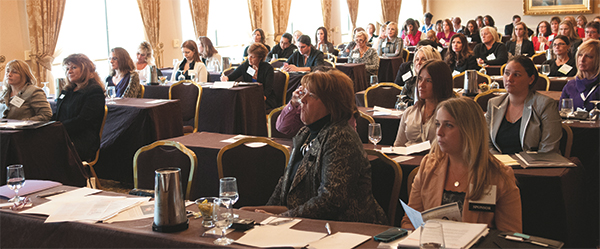
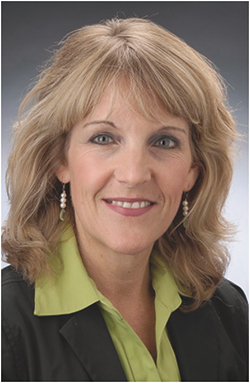
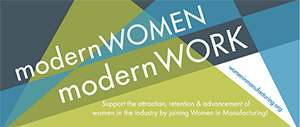
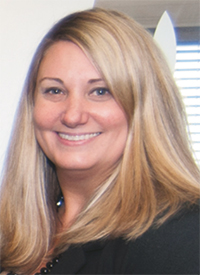

 Podcast
Podcast